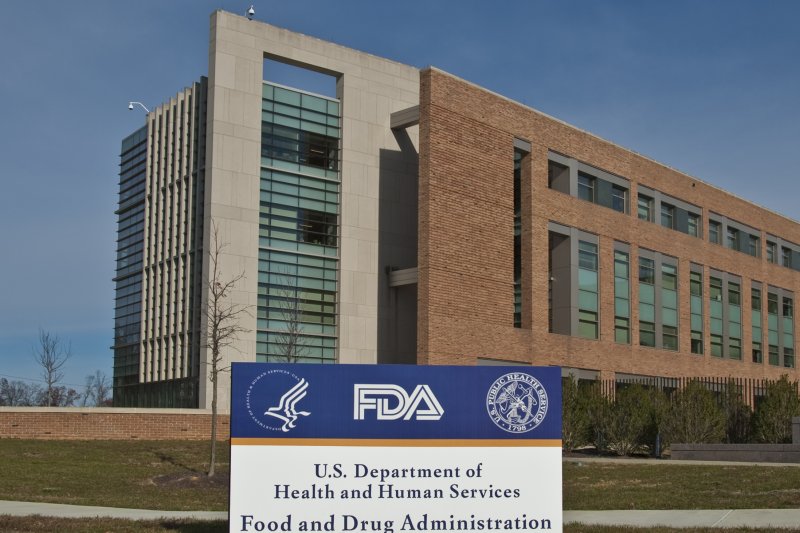The headquarters of the Food and Drug Administration in Silver Spring, Maryland. The FDA approved a drug to treat the most common form of liver cancer known as hepatocellular carcinoma. Photo courtesy FDA
May 4 (UPI) -- The U.S. Food & Drug Administration Thursday approved a new drug to treat the most common form of liver cancer, hepatocellular carcinoma.
The drug, regorafenib, is the first and only treatment approved by the FDA in more than a decade to show significant improvement in patients with hepatocellular carcinoma, or HCC.
HCC accounts for three-quarters of liver cancers in the United States and is the second leading cause of cancer-related deaths worldwide. Roughly 40,000 Americans will be diagnosed with liver cancer in 2017 with more than 28,000 dying from the disease.
Doctors were only able to treat the early and intermediate stages of the disease in the affected area of the liver with surgery, transplantation or chemotherapy. But when the cancer progresses, patients are often candidates for systemic therapies.
Sorafenib was initially approved by the FDA 10 years ago as the first systemic therapy for patients with advanced HCC. The new approval by the FDA allows for another option for patient's whose cancer progressed after traditional and systemic treatments.
Researchers at UCLA and 21 other sites in the United States, Europe and Asia tested the drug on 567 people with HCC in a two-year Phase III clinical trial called RESORCE.
Regorafenib was shown to extend overall survival by 10.6 months compared to 7.8 months for patients receiving a placebo, resulting in an average improvement in survival of 3.1 months and a 37 percent reduction in the risk of death in patients with HCC.
"When liver cancer progresses to advanced stages, a cure is no longer possible," Dr. Richard Finn, associate professor of medicine at the David Geffen School of Medicine and director of the Signal Transduction and Therapeutics Program at UCLA's Jonsson Comprehensive Cancer Center, said in a press release. "Traditional treatments can help slow and control the disease for a short period of time, but eventually tumor growth will continue. Today's approval of regorafenib is a major clinical advancement for patients when initial therapies are no longer working."















